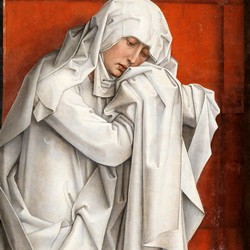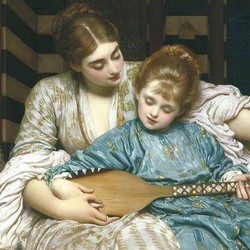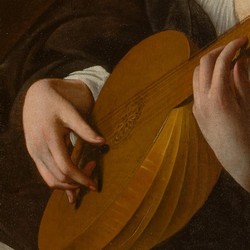- Details

"Ordre et beauté". I haven't gone into Charles Baudelaire's poetry in depth, but these words, "order and beauty," are one of my mottos, as the readers of this blog know; I talked about it a long time ago in a post about L'invitation au voyage by Henri Duparc, composed on a poem by Baudelaire. Back then, I only mentioned in passing the troubled life of the poet and, given that April 9 marks 200 years since he was born, I thought that I could talk about him this week before we listen to one more song, again [...]
- Details

Last week, I mentioned a few recently published albums, all of which were characterized by an unpublished or almost unpublished repertoire. Among them, a recording with songs by Charles Villiers Stanford, and we'll listen to one of them this week.
Songs of Faith, Op. 97 is one of the almost unpublished works; there is at least one partial recording but this one with Roderick Williams and Andrew West is the first complete recording.
- Details

A few days ago I talked with another twitterer about whether a new recording of Die schöne Müllerin was needed; my interlocutor wondered if it contribute anything new. As I told him, I welcome a new, good recording of Die schöne Müllerin, because there are always new details to be found; One of the things that defines the classics is their timelessness; they are always new, they are always valid, and they always teach us something new.
- Details

If Die schöne Müllerin were a film, all the scenes (each scene, one song) would be exterior shot. All but one: Pause. We see the wanderer between fields, in the forest, by the stream, at the foot of the window of the maid of the mill... But at Pause, the twelfth song, he's in his room. The last verses of the previous one, Mein!, hints at why he takes refuge: Ach, so muß ich ganz allein / Mit dem seligen Worte mein / Unverstanden in der weiten Schöpfung sein! [Ah, so I must be all alone / With my blissful word, / Incomprehensible to all of Creation!]. So far, he has relied on nature, but the emotions that [...]
- Details

If the Schubertíada is programming the three great Schubert's cycles sung by three baritones, I have to start with this, even if it is not the beginning. Three works that I never get tire of listening, performed by three voices that I would never miss. The young Konstantin Krimmel, who amazed me at his Schubertiad debut in December 2019 (and I wasn't the only to be amazed) will sing Die schöne Müllerin accompanied by Daniel Heide; Florian Boesch, one of the most beloved singers in this place, made his debut in Vilabertran last year precisely with this cycle, and he will be back this year, with the great Malcolm Martineau, to perform Schwanengesang.













